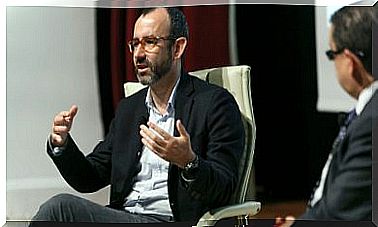12 Years Of Slavery (The Drama Of Absolute Power)

The film 12 Years a Slave won multiple Oscars in 2013, including Best Picture. The film is based on the true story of Solomon Northup, an African American who was born free, but was kidnapped and forced to live as a slave in the United States.
The filming of the film was preceded by a meticulous historical investigation, both of the history that served as the basis for the plot, and of the uses, customs and even the objects that were used in the 19th century, when the events occurred. .
The film has been received with great approval by the public and by critics. In it, the subject of slavery is dealt with starkly and unambiguously. Beyond that, the film explores the condition of an obtuse and terrible power, and the way it manifests itself.
Slavery

More than a legal possibility, the film shows that slavery is a worldview. It is not limited to exploiting another human being to get the most out of it, but also involves a whole constellation of behaviors that go beyond the economic or political issue.
In 12 years of slavery it is clearly shown how these absolute powers want to control even the most insignificant aspects of a person’s life. Nothing escapes your vigilance. No one escapes his examination. It is not only a matter of forcing another to work for the benefit of others and without compensation in return, but it also wants to degrade, humiliate and deprive the other of any form of dignity.
Solomon, the protagonist of the film, not only has his freedom taken away, but also his identity. They do not give you the right to continue using their name. They make up a story that replaces their real past and are completely unaware of their training, tradition and talents.
Martyrdom runs through history completely. Slavery is not limited to doing hard work from sunrise to sunset. It also means obeying any order, no matter how absurd, and being able to tolerate physical torture at the whim of the master. In the film, slavery is revealed for what it is on the human level: a perversion.
Deception and power

Deception is one of the driving forces of history. Solomon Northup ends up being a slave due to a deception of which he is a victim. And the first thing he learns is that he must lie if he wants to survive. He cannot (must not) be a literate Negro. Knowing how to read and write is dangerous. The masters would take it as an affront.
The “compassionate masters” that Solomon encounters in his wake are self-righteous and self-deceiving beings. They treat slaves with a certain condescension. But they use slavery and in extreme situations they do nothing more than wash their hands.
In his quest to be a free man again, Solomon makes the mistake of trusting a target with his exit plan. He places all his trust in him, and again he is deceived. He, in turn, manages to circumvent the situation by deceiving his master to avoid punishment. Probably death.
In any absolutist regime, the truth is a problem. In this case, “truth” does not refer to that powerful scientific or philosophical construction. Rather, we speak of that simple truth, which does not require further proof to be verified. That it is night or day; that what was said was said, or not talked about; that milk is white and roses have perfume.
For evil powers, having control over these everyday truths is critical. It does not matter how true or false a statement is. What matters is who says it. And if it is said by whoever has power, it is consecrated as absolute truth.
Very North American style, the story has an ending in which justice is done. Solomon manages to regain his freedom thanks to the good offices of a white man who ends up helping him. The rule of democracy is imposed, of truth. Hollywood usually gives us a glimmer of hope at the end of all their films.
Image courtesy of elyn.









